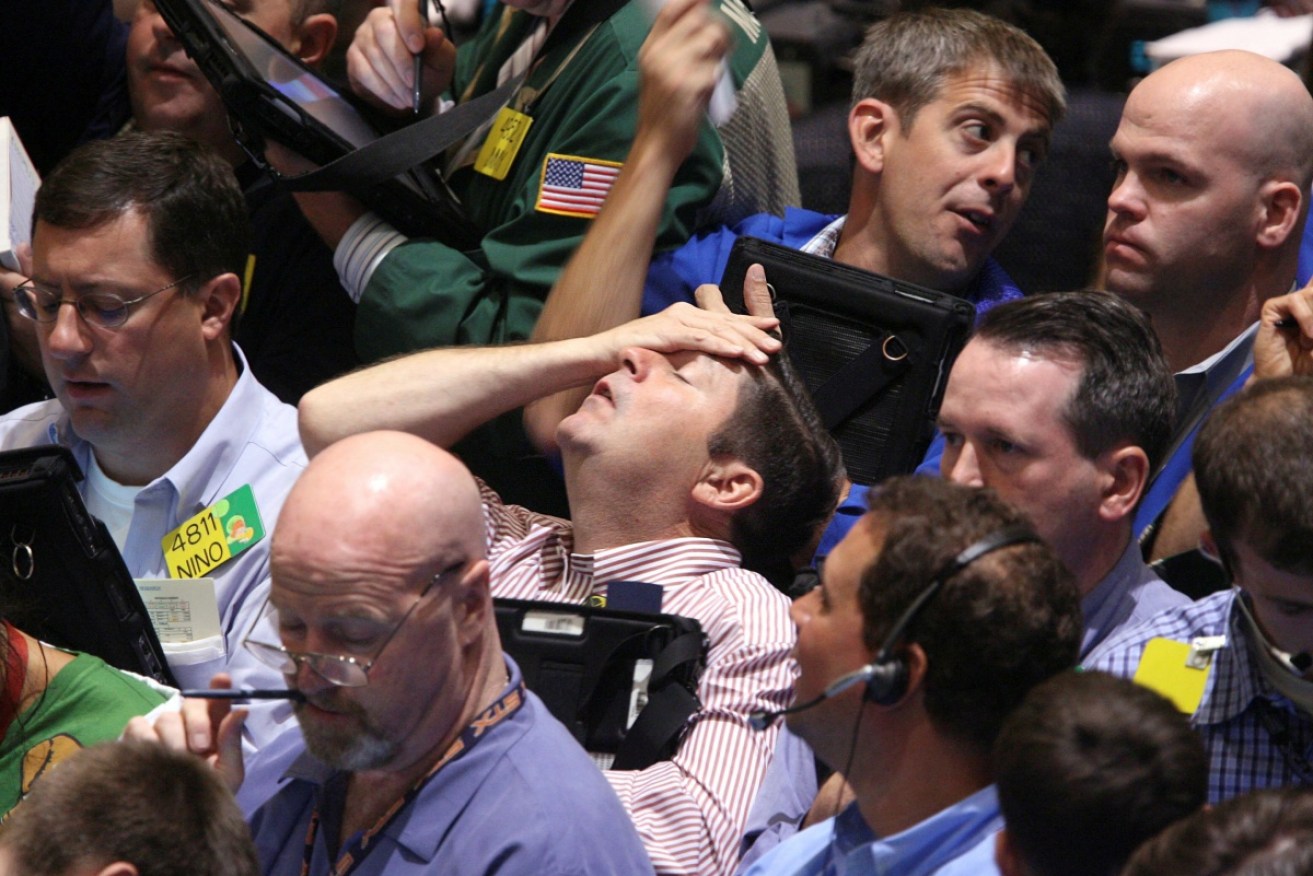‘Sleep-walking into the next GFC’: And it could be only a year away


The world isn't ready for the next GFC. Photo: AAP
![]() The world has little more than a year to prepare for the next economic crisis. That’s the prediction of US investment bank JP Morgan Chase & Co.
The world has little more than a year to prepare for the next economic crisis. That’s the prediction of US investment bank JP Morgan Chase & Co.
In 2020, according to this week’s prediction, US stocks will slide by 20 per cent, emerging markets will lose almost half their value along with 14.4 per cent of emerging currencies. Oh, there’ll be a 29 per cent drop in base metal prices.
That’s the good news.
The day before JP Morgan had its say, Gordon Brown, the UK’s former prime minister and chancellor of the Exchequer, told the BBC that the world is actually “sleep-walking” toward this cliff.
Mr Brown, who led Britain during the GFC, said the world wasn’t prepared to deal with another financial crisis, largely because of a breakdown in international co-operation on matters such as climate change, nuclear weapons, protectionism and weakening military alliances.
Clueless in a crisis
Mr Brown said: “This is a leaderless world and I think when the next crisis comes, and there will be a future crisis, we’ll find that we neither have the fiscal or monetary room for manoeuvre or the willingness to take that action.
“But perhaps most worrying of all, we will not have the international co-operation necessary to get us out of a worldwide crisis.”

We’re still paying off the last GFC! Photo: AAP
Without the sort of cooperation which he said marked the recovery from the GFC, nations would be unable to act in a concerted way to tackle emerging threats.
Nafis Alam, associate professor of finance, Reading University, writing for The Conversation in response to Mr Brown’s downbeat comments, named the prime threats as record-high global debt (225 per cent of GDP); a looming trade war between the US and China; the bleeding of cash from emerging markets such as Argentina and Turkey; the so-called shadow banking sector; and the scary unknown of cyber terrorism.
A gloomy parade
The year 2018 has seen a series of gloomy predictions of crisis from an array of analysts, including Bill Gates; Ann Pettifor, the UK-based analyst who predicted the GFC; analyst Jesse Colombo in series of detailed reports for Forbes about various bubbles; and chief economist with Capital Economics Australia Paul Dales, who has written provocatively about the risks of an Australian crisis.
Shane Oliver, chief economist at AMP Capital, told The New Daily that, like JP Morgan, he would have named 2020 as the year for the next bear market to raise its claws – before factoring in the US presidential election.
He now expects it to occur a year or two after that. But he says expectations that the next crash will be another GFC ignores the history of these crises – which have had specific causes.
“The only thing certain is there will be another crisis,”he said. “You have one every so often. But history doesn’t repeat, it rhymes.”
Three ways it could happen
He noted the GFC was different to other crashes because it was an “existential” crisis for the entire banking system. “Banks today are stronger because they have to hold a lot of more capital … so I think we are a lot better prepared for it this time.”
He also said that anniversaries – and 2018 marks the 10th anniversary of the GFC – brings “people out of the woodwork, and this is why we’re hearing so many predictions of the next one. They’re right in the sense that we’ll have a crisis, but it’s not necessarily where they think it will happen.”
Mr Oliver said that major economic crises are usually preceded by generalised booms, centralised banks raising interest rates and wages growth.
“Interest rates went up 17 times before the GFC, triggering the collapse in housing. This time round, interest rates [the RBA’s cash rate] are at 2 per cent.”
He said that next crisis will come when the US boom starts to push on interest rates and wages, or because of a collapse in emerging markets and a subsequent failure to meet debt, or when Donald Trump goes nuclear in his trade war.
Meanwhile, much of the public debt relative to the global economy is a hangover from the GFC. We’re still paying it off. And we’ll still be paying for it when the next one hits.








